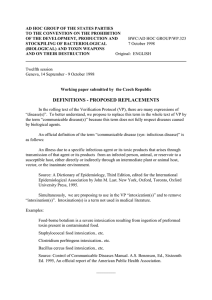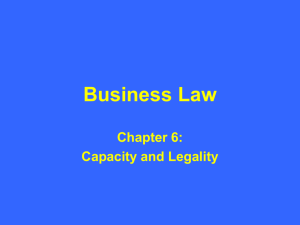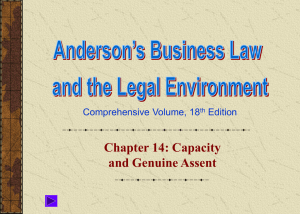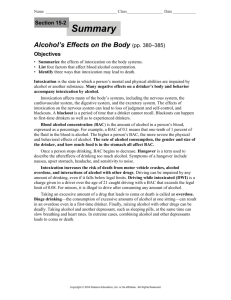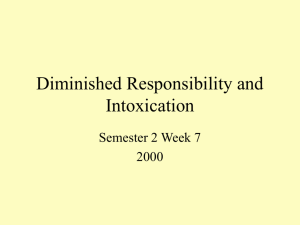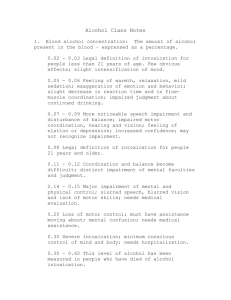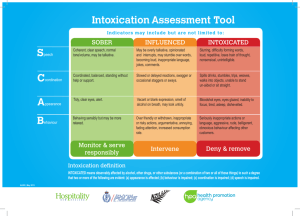Contractual Capacity: Legal Definitions & Concepts
advertisement
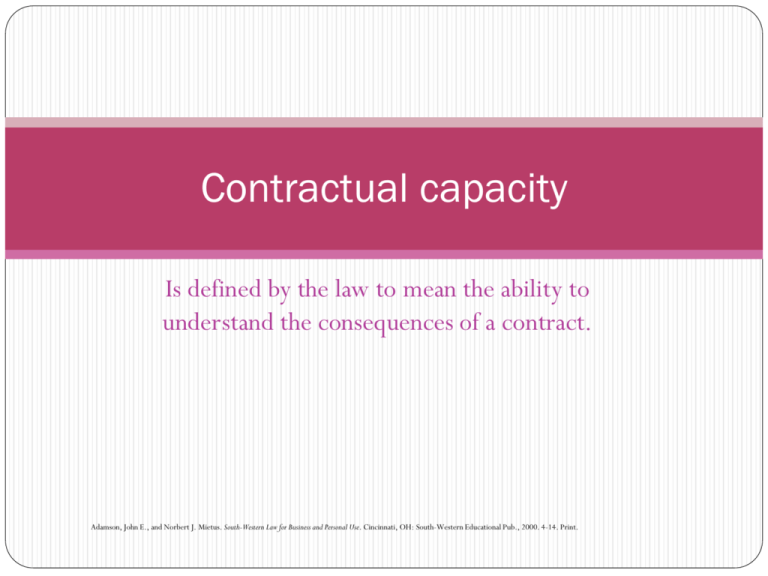
Contractual capacity Is defined by the law to mean the ability to understand the consequences of a contract. Adamson, John E., and Norbert J. Mietus. South-Western Law for Business and Personal Use. Cincinnati, OH: South-Western Educational Pub., 2000. 4-14. Print. Age of Majority to contract This is the age at which a person is entitled to the management of his or her own affairs. Most states it is the age of 18 Minor A person who has not yet reached the age of majority. Minority The state of being below the age of majority, ends the day before the birthday of the age legally set as the age of majority. Necessaries Things needed to maintain life-typically food, clothing, and shelter. Emancipation Is the severing of the child-parent to support a child. It ends the duty of the parent to support a child and the duty of the child to obey the parent. Contractual Capacity The ability to understand that a contract is being made and its general meaning. Early Emancipation Moving away of a minor from the family home. Mental Incapacity Under contract law mental incapacity means that a person lacks the ability to understand the consequences of his or her contracts. Thus people with severe mental illness, severe mental retardation, or severe senility lack capacity. Intoxication Can arise from using legal or illegal drugs. If a person’s degree of intoxication is high enough, the law holds she or he loses the capacity to contract. Scope of Authority Range of acts an organization authorizes a person to do. Incapacitation Parties who lack capacity due to mental impairment, age, or intoxication. Ratification An action with the intent to be bound by a contract. Disaffirmance Giving back of consideration of both parties. Fair Labor Standards Act Legislation that prohibited the employment of children under 16. Age of Minority The age of 18 or younger
